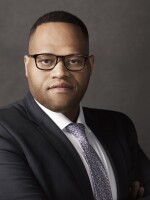Connecticut legislators have just one week left to reject the historic Sheff v. O’Neill school desegregation agreement or it will go into effect. While many from the Hartford delegation are not happy with the terms of the agreement, it doesn’t look like lawmakers will stop it.
Late last week, the legislature’s education committee met to discuss the historic agreement, which promises to offer every Black or Hispanic Hartford student who applies for a spot enrollment in a well-funded, integrated magnet or suburban school.
It was the first time the team who negotiated the agreement on behalf of Gov. Ned Lamont faced legislators. They were none too happy.
“Not one person who signed this agreement lives in Hartford or sent their child through the Hartford Public School systems, and that’s sad,” said state Sen. Doug McCrory (D-Hartford), who lives in Hartford and is the co-chairman of the legislature’s education committee.
McCrory isn’t the only Hartford legislator who is pushing back. Connecticut Public reached out to the entire delegation, all of whom expressed concerns with the Sheff settlement’s lack of focus and resources for traditional neighborhood schools.
“Our neighborhood public schools need a massive investment by the state of Connecticut, and that’s the only way we’re going to resolve this issue of racial segregation,” said state Rep. Edwin Vargas (D-Hartford), a retired teacher who lives in Hartford.
State Sen. John Fonfara (D-Hartford) believes the legislature should not accept the Sheff agreement without a massive investment also in neighborhood city schools in Hartford and across the state. Currently, 27% of Hartford students attend integrated schools.
“I think there must be a companion piece that recognizes not just the Hartford kids who've never benefited from Sheff, but also addresses other communities around Connecticut,” said Fonfara.
Since the Connecticut Supreme Court ruled in 1996 that Hartford students “suffer daily” from racial and economic isolation, the state has been forced to spend $4 billion to open magnet schools for Hartford children.
A separate lawsuit from 2018 that aimed to force the state to infuse money into struggling neighborhood schools was not successful, and the state’s high court left it to the legislature to decide how much to spend on education.
Since then, state spending on education has increased moderately and is slated to continue to do so by routing an additional $189 million into the state’s school grant over the next six years. That’s an 8.8% increase.
Hartford Superintendent Leslie Torres-Rodriguez said the settlement fiscally threatens her district if too many students leave and could have a potentially destructive impact on the students of Hartford Public Schools.
“We know that there are students that are not in magnets. Ultimately, we have to attend to our entire school system,” said Torres-Rodriguez.
Her staff estimates in the worst-case scenario that if every student who wants to leave her district does, Hartford Public Schools would lose $6 million per year. That’s a 1% drop in funding if 15% of the students leave.
The legislature has until March 17 to come in and reject the settlement. If leadership declines to raise it for a vote, the agreement will be deemed approved.
House Speaker Matt Ritter, who represents Hartford and controls whether it will be voted on, declined multiple interview requests.
Meanwhile, concern is also present among legislators outside of Hartford who see segregation and funding disparities in their districts – and the resources being directed only to Hartford. That spilled over into the legislature’s education committee meeting on Monday, when state Sen. Gary Winfield from New Haven expressed his feelings on the Sheff settlement.
“We sit here today with pretty extreme racial and ethnic isolation. I’m frustrated because we are 20-plus years later, and the questions that were existing then still exist today,” said Winfield.
Despite the pushback, the education committee reluctantly approved the settlement. It’s now up to General Assembly leaders to bring this to a vote.
Members of the state House of Representatives have been told to reserve next Wednesday to come into session, but it’s unclear whether the chamber will take up this issue.
House Majority Leader Jason Rojas (D-East Hartford) says no decision has been made yet whether to vote on the agreement. He also has mixed feelings about the agreement.
Several magnet schools have historically struggled to attract white suburban students and have not met the benchmarks to be considered integrated. The settlement aims to infuse money into these schools to overhaul the learning model of the schools and to increase sports and extracurriculars to attract more students.
“Certainly, it’s going to give parents a choice. The outcome of that, I’m not quite sure is actually going to be a setting that is integrated,” said Rojas.
The legislature’s Black and Puerto Rican Caucus has not taken an official position on the settlement.
State Rep. Geraldo Reyes, chairman of the caucus who lives in Waterbury, said he’s heard that more parents want the opportunity to send their children to magnet and suburban schools.
“I’ve definitely heard the parents in Hartford, I’ve heard them loud and clear. They want choice,” said Reyes.
East Hartford state Rep. Jeff Currey takes issue with the $10 million tuition cost that East Hartford would have to pay magnet schools under the Sheff agreement, and he feels this money would be better spent in neighborhood schools.
“That’s $10 million that could be invested within the walls of the traditional public schools in East Hartford.”
When asked if he suspects the General Assembly will vote on the settlement, Currey said that “there are conversations happening in this building around a Sheff agreement that I’ve never heard take place before.”




